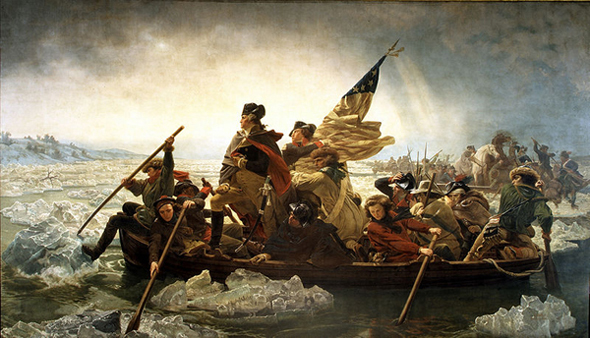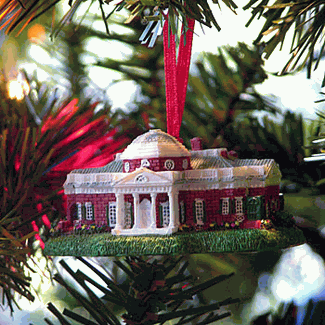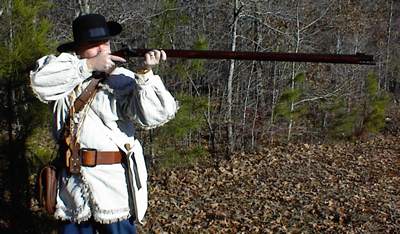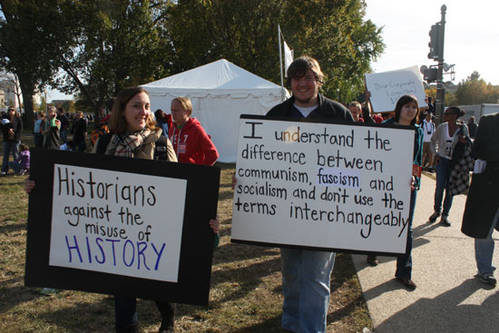Remembering times that try men’s souls
Hugh Harrington (above) is a fellow author and historian of whom I have the greatest respect for. We share the same publishers at The History Press and Patriots of the American Revolution and I am doing everything I can just to keep up with him. Hugh’s incredibly long list of credits include multiple books on Milledgeville GA and insights on both Sherlock Holmes and Sir Arthur Conan Doyle. For more on Hugh’s published works visit his website at www.hughharrington.com/. We often chat via email and this week our discussion revolved around my last blog post on Washington’s crossing of the Delaware River. Hugh had a wonderful way of painting this event with words. He wrote:
It’s dark now in the Delaware River Valley. 234 years ago at this very hour it was dark, and cold, wet, miserable and frightening. Washington’s ragged, beaten army was lined up waiting their turn to cross the Delaware and almost certain destruction. They were crossing the river into the teeth of the enemy. If the Hessians knew they were coming the Patriot army would be slaughtered. When Washington went into battle he always left a route by which to retreat. Now however, there was no retreat. If defeated there was no escape; they could never get back across the Delaware. It was victory or death. Those cold, wet, shivering men walked all night to Trenton. This was the end of the war, it was the end of their lives. Just a week before Thomas Paine had written as the opening lines to The Crisis paper, “These are the times that try men’s souls. The summer soldier and the sunshine patriot will in this crisis, shrink from the service of his country; but he that stands it now, deserves the love and thanks of man and woman.” These men did not shrink. But, they must have been almost as surprised as the Hessians were when they won the battle. Their stunning victory literally saved the revolution. It was still a probability that the war would be lost but they had at least delayed the utter destruction of the revolution. We ought to remember - and especially on Christmas night - to give thanks to those men of 1776 who crossed the Delaware River, marched through snow and cold into almost certain defeat and annihilation and emerged the victors.
Christmas Crossing

“Washington Crossing the Delaware” by Emanuel Leutze (1851)
“The promise of democracy was lost just a year into these revolutions. But if you had someone like George Washington at the helm, all could be saved.” - Carrie Barrett, MET
During this holiday weekend I would like to take a moment to acknowledge the anniversary of what I consider to be THE, most remarkable maneuver in American military history. On December 25, 1776, General George Washington and his troops executed a victorious surprise attack against Hessian forces in Trenton, New Jersey. What made this particular engagement noteworthy was the Continental Army's precarious crossing of the Delaware River prior to the battle.
Planned in complete secrecy, Washington orchestrated this entire maneuver right down to the last detail. On Christmas day he ordered his men to prepare three day's rations and outfit their muskets with fresh flints. Starting at 4pm, all available men, including officers, doctors and musicians were issued firearms and ammunition and told that they were about to embark on a secret mission. Marching in ranks of 8 across, the army departed as quietly as possible from their camp at McKonkey's Ferry. An unexpected storm blew in shortly thereafter, slowing the Continental's tight formations and pushing their arrival at the banks on the Delaware to 6pm, over an hour and a half after sunset.
Washington's chief of artillery, Henry Knox, was in charge of managing the logistics of the crossing. In addition to the infantry, Knox was also tasked with safely transporting eighteen pieces of artillery, as well as the horses required to move them. Adding to the difficulty of managing the boats, the Delaware River was congested with floating ice. In an attempt to set an example, Washington was in one of the first watercraft to depart. This bolstered the confidence of his men, many of whom could not swim.
Once across, Washington and his fellow Virginians formed a picket line around the landing area. General Adam Stephen was charged with covering the arriving Continentals and maintained a tight perimeter that saw no action. Once each soldier reached the other side, he was given the password that would allow him to move about and through the sentry line. "Victory or Death" was the official phrase. Throughout the night, the rest of Washington's forces crossed without any major incident, although Delaware's Colonel John Haslet fell into the water and was quickly rescued.
Unfortunately, the two other crossings below Trenton suffered multiple problems including treacherous currents and massive ice jams that prevented boats from passing. Colonel Cadwalader was able to transport a significant portion of his men across the river, but he was unable to get any cannons to the other side. Unable to support his infantry with any artillery, Cadwalader recalled his troops and did not attempt to cross again until after Washington had already been reported victorious.
After his entire force was in place, Washington split them in two columns, one under the command of General Greene and the second under General Sullivan. He then sent one column into Trenton via Bear Road and the other in from Pennington Road. This enabled the Continentals to launch a surprise attack from two directions and essentially choke the Hessians before they had time to react. As a testament to the success of Washington's strategy, the Continentals suffered 3 deaths and 6 wounded while the German forces had 22 men dead and 98 wounded. Washington's troops also captured 1,000 prisoners and seized a significant cache of supplies including muskets, gun powder and artillery.
Washington personally sent the following report to the Continental Congress informing them of his victory.
Head Quarters, Newtown
27 December 1776
Sir:
I have the pleasure of congratulating you upon the success of an enterprise lying in Trenton, and which was executed yesterday morning. The evening of the 25th I ordered the troops intended for this service to parade back of McKonkey's Ferry that they might begin to pass as soon as it grew dark, imaging we should be able to throw them all over, with the necessary artillery, by twelve o'clock, and that we might easily arrive at Trenton by five in the morning, the distance being about nine miles. But the quantity of ice, made that night, impeded the passage of the boats so much, that it was three o'clock before the artillery could all be got over; and near four before the troops took up their line of march. This made me despair of surprising the town, as I well knew we could not reach it before the day was fairly broke. But as I was certain there was no making a retreat without being discovered and harassed on repassing the river, I determined to push on at all events. I formed my detachment into two divisions, one march by the lower or river road the other by the upper or Pennington road. AS the divisions had nearly the same distance to march, I ordered each of them immediately upon forcing the out-guards to push directly into the town, that they might charge the enemy before they had time to form.
The upper division arrived at the enemy's advanced post exactly at eight o'clock; and in three minutes after, I found, from the fire on the lower road, that the division had already got up. The out-guards made but small opposition, though, for their numbers, they behaved very well, keeping up a constant retreating fire from behind houses. We presently saw their main body formed; but, from their motions, they seemed undetermined how to act. Being hard pressed by our troops, who had already got possession of their artillery, they attempted to file off by a road on their right, leading to Princeton. But, perceiving their intention, I threw a body of troops in their way, which immediately checked them. Finding from our disposition, that they were surrounded and that they must inevitably be cut to pieces if they made any further resistance, they agreed to lay down their arms. The number that submitted in this manner was twenty-three officers and eight hundred and eighty-six men. Colonel Rahl, the commanding officer, and seven others, were found wounded in the town. I do not exactly know how many were killed; but I fancy not about twenty or thirty, as they never made any regular stand. Our loss is very trifling indeed, -- only two officers and one or two privates wounded.
I find that the detachment of the enemy consisted of the tree Hessian regiments of Anspach, Kniphausen and Rahl, amounting to about fifteen hundred men, and a troop of British light-horse; but, immediately upon the beginning of the attack, all those, who were not killed or taken, pushed directly down the road towards Bordentown. These would likewise have fallen into our hands, could my plan have been completely carried into execution. General Ewing was to have crossed before day at Trenton Ferry, and taken possession of the bridge leading out of town; but the quantity of ice was so great, that, though he did every thing in his power to effect it, he could not get over. This difficulty also hindered General Cadwalader from crossing with the Pennsylvania militia from Bristol. He got part of his foot over; but finding it impossible to embark his artillery, he was obliged to desist. I am fully confident, that, could the troops under General Ewing and Cadwalader have passed the river, I should have been able with their assistance to drive the enemy from all their posts below Trenton. But the numbers I had with me being inferior to theirs below me and a strong battalion of light infantry being at Princeton above me, I though it most prudent to return the same evening with the prisoners and artillery we had taken. We found no stores of any consequence in the town.
In justice to the officers and men, I must add, that their behavior upon this occasion reflects the highest honor upon them. The difficulty of passing the river in a very severe night, and their march through a violent storm of snow and hail, did not in the least abate their ardor; but, when they came to the charge, each seemed to vie with the other in pressing forward and were I to give preference to any particular corps, I should do great injustice to the others. Colonel Baylor, my first aid-de-camp, will have the honor of delivering this to you; and from him you may be acquainted with many other particulars. His spirited behaviour upon every occasion requires me to recommend him to your particular notice.
I have the honor to be, & c.
Go. Washington
The site of Washington's crossing has become a hallowed ground on the American landscape and is forever preserved as Washington's Crossing National Historic Landmark, the nearby Washington Crossing Historic Park and perhaps the most famous of all markers, the Washington Crossing Bridge.
Christmas and slavery at Monticello

Although Thomas Jefferson’s Bible presents a non-traditional view on the birth of Jesus, Christmas celebrations were still held at Monticello and Poplar Forest acknowledging the Christian holiday. In 1762, Jefferson described Christmas as “The day of greatest mirth and jollity” and both friends and family wrote about the decorating of evergreen trees and the hanging of stockings. Christmas was also a time of change for Monticello’s slave population.
According to the Thomas Jefferson Foundation: “For African-Americans at Monticello, the holiday season represented a time between - a few days when the winter work halted and mirth became the order of the day. The Christmas season came to represent hours when families reunited through visits and when normal routines were set aside. In 1808, Davy Hern traveled all the way to Washington where his wife Fanny worked at the President’s House to be with her for the holidays. Two days before the Christmas of 1813, Bedford Davy, Bartlet, Nace, and Eve set out for Poplar Forest to visit relatives and friends. Enslaved people frequently recalled that Christmas was the only holiday they knew. Many cherished memories of gathering apples and nuts, burning Yule logs, and receiving special tokens of food and clothing.”
The Thomas Jefferson Encyclopedia provides the following list of 'Christmas in the Enslaved Community' primary source references:
- 1790 December. (Nicholas Lewis, Monticello steward, accounts in Ledger 1767-1770). “To 2 1/2 Gallons Whiskey at Christmass for the Negroes.”
- 1797 December 2. (Jefferson to Maria J. Eppes). “Tell Mr. Eppes that I have orders for a sufficient force to begin and finish his house during the winter after the Christmas holidays; so that his people may come safely after New year's day.”
- 1808 November 17. (Edmund Bacon to Thomas Jefferson). “Davy Has Petitioned for leave to come to see his wife at Christmass.”
- 1808 November 22. (Jefferson to Edmund Bacon). “I approve of your permitting Davy to come [to Washington] at Christmas.”
- 1810 August 17. (Jefferson to W. Chamberlayne). “I agreed to take them [hired slaves] at that price and they were to come to me after the Christmas Hollidays when their time with him was out.”
- 1813 December 24. (Jefferson to Patrick Gibson). “We shall begin to send [flour] from hence immediately after the Christmas holidays.”
- 1814 December 23. (Jefferson to Jeremiah Goodman, overseer). “Davy, Bartlet, Nace and Eve set out this morning for Poplar Forest. Let them start on their return with the hogs the day after your holidays end, which I suppose will be on Wednesday night [Dec. 28], so that they may set out Thursday morning.”
- 1818 December 24. (Joel Yancey, Poplar Forest, to Jefferson). “Your two boys Dick and Moses arrived here on Monday night last [Dec. 21]. Both on horse back without a pass, but said they had your permission to visit their friends here this Xmass.”
- 1821 December 27. (Mary Jefferson Randolph to Virginia Jefferson Randolph). “This Christmas has passed away hitherto as quietly as I wished and a great deal more so than I expected. I have not had a single application to write passes or done or seen any of the little disagreeable business that we generally have to do and except catching the sound of a fiddle yesterday on my way to the smokehouse and getting a glimpse of the fiddler as he stood with half closed eyes and head thrown back with one foot keeping time to his own scraping in the midst of a circle of attentive and admiring auditors I have not seen or heard any thing like Christmas gambols and what is yet more extraordinary have not ordered the death of a single turkey or helped to do execution on a solitary mince pie wo you see you lost nothing by being on the road this week.”
Although Christmas did not represent physical freedom for Monticello’s slave population, it could provide an opportunity for spiritual freedom, as well as the hope for better things to come. According to his records, Jefferson granted a four-day holiday at Christmas in which slaves could visit with friends and family in the community. Christmas was also one of the two times during the year that Jefferson would provide cloth to his slaves for clothes.
Like most masters, Jefferson increased his slave’s food rations during this time and on occasion, provided whiskey. During the brief sabbatical Monticello’s slaves had the freedom to hold their own services and celebrations, which included the same merriment as their white counterparts. This included singing and dancing. There are no records that indicate that Thomas Jefferson attended any of these events, but Isaac Jefferson once recalled that his brother would “come out among the black people, play the fiddle and dance half the night.”
Christmas on Mulberry Row is one of the most striking examples of the complex and contradictory nature of the master-slave relationship at Monticello. Despite its apparent hypocrisy, the holiday season represented a time when enslaved African-Americans could exercise a little levity and celebrate the birth of our Lord and savior.
I would like to take this opportunity to wish all of my readers a very Merry Christmas. God bless.
Posted by ny5/pinstripepress
at 10:30 AM EST
Updated: Wednesday, 22 December 2010 10:53 AM EST
Permalink |
Share This Post









